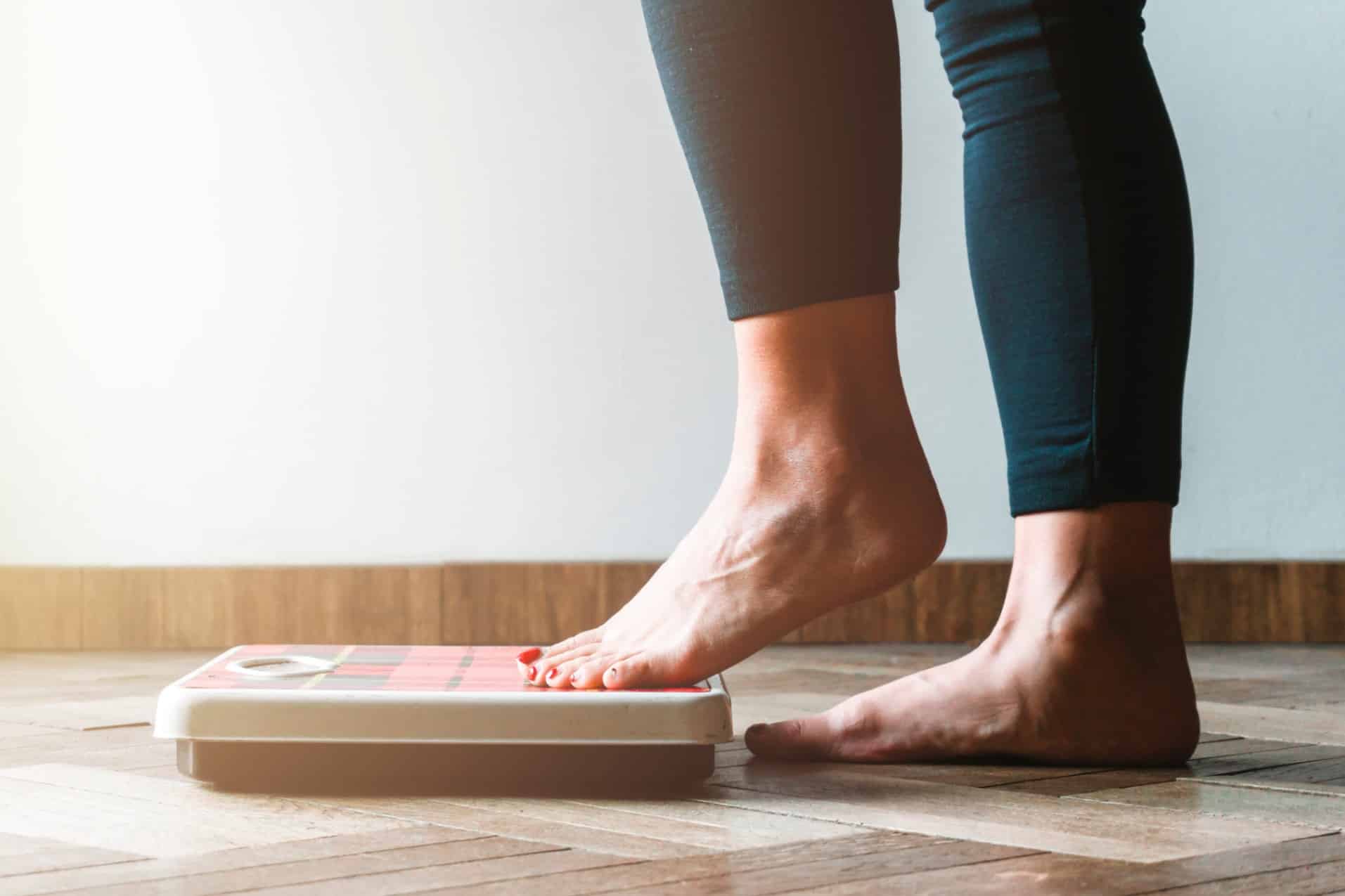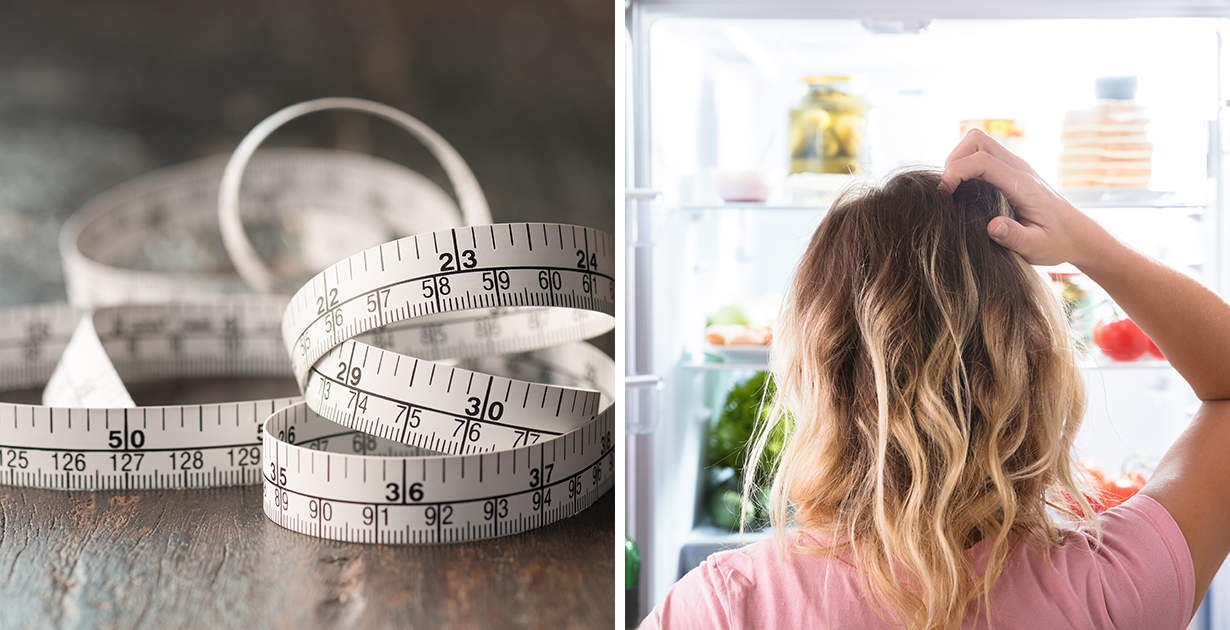Losing weight fast and naturally, while also ensuring it stays off permanently, is a goal shared by many. The key to unlocking this achievement lies in understanding how your body works and making thoughtful lifestyle adjustments. Permanent weight loss is not about drastic diets that are impossible to maintain, but rather about incorporating a healthy diet and lifestyle changes that you can stick to long-term. It’s about creating a balance that works uniquely for your body and life.
Its important to remember that quick weight loss solutions can lead to temporary results at best and health complications at worst.
A sustainable approach to weight loss involves more than just what you eat; it also includes behavioral changes that foster physical activity and psychological well-being. Adopting a comprehensive strategy not only helps you shed pounds but also improves your overall health, leaving you feeling better both physically and mentally.
Weight Loss Basics

Role of Calories and Nutrients
Calories are like your body’s currency; every activity you do ‘spends’ this currency, and eating ‘earns’ it. For weight loss, maintaining a calorie deficit—spending more than you earn—is crucial. But not all calories are equal. Your body needs a balanced intake of nutrients like protein, fat, and fiber to fuel healthy functions.
- Protein: Vital for muscle repair and to increase satiety.
- Fat: Needed for hormone production and to absorb vitamins.
- Fiber: Helps regulate the digestive system and maintain a feeling of fullness.
Importance of Metabolism
Metabolism refers to the rate at which you burn calories. A faster metabolism means you burn more calories at rest and during activity. Lean muscle mass boosts metabolism because muscle burns more calories than fat, even when you’re not moving.
To increase your metabolism, consider:
- Strength training to build muscle.
- Eating small, frequent meals to keep your metabolism active.
Effects of Hormones on Appetite
Your appetite is regulated by hormones, such as ghrelin, leptin, and cortisol.
- Ghrelin: Often called the ‘hunger hormone’; it signals when to eat.
- Leptin: Communicates the sensation of fullness to the brain and can affect weight loss efforts.
- Cortisol: Commonly known as the ‘stress hormone’, can lead to overeating when levels are high.
Maintaining a balance of these hormones is key to controlling hunger and achieving weight loss. Regular sleep, stress management, and a nutrient-rich diet are essential for hormone regulation.
Nutritional Strategies

To embark on a journey of fast, natural, and permanent weight loss, your nutrition should be centered around a balanced diet rich in vegetables, fiber, healthy fats, and whole foods. Let’s dive into how you can fine-tune your eating habits to support your weight loss goals.
Balancing Macronutrients
Your body needs a mix of protein, fat, and carbohydrates to function optimally. Aim for a variety of protein-rich foods like chicken and legumes, healthy fats such as avocados and olive oil, and complex carbohydrates found in whole grains. This balance helps maintain steady energy levels and supports fat loss.
Choosing Whole Foods Over Processed
Whole foods are packed with nutrients that processed foods lack. Include a colorful array of fruits and vegetables in your diet to boost your intake of fiber, vitamins, and antioxidants. Snack on a handful of nuts and seeds instead of reaching for chips or cookies.
Limiting Sugars and Refined Grains
Be vigilant about reducing your intake of added sugar and refined grains like white bread and pasta, which can spike your blood sugar and lead to weight gain. Instead, choose foods with a lower glycemic index that provide sustained energy. Drinking sugary beverages is also a major contributor to calorie intake; swap out sodas for water or herbal teas to cut down on liquid calories.
Lifestyle Modifications for Weight Loss
Making changes to your daily habits can greatly impact your weight loss journey. By adjusting your lifestyle to include consistent exercise, healthy eating, and sufficient rest, you can lose weight naturally and maintain it long-term.
Incorporating Regular Physical Activity
To effectively burn more calories and enhance your physical health, regular exercise should become a non-negotiable part of your routine. Aim for at least 30 minutes of moderate to vigorous activity most days of the week. You could go for a brisk walk, swim, or even join a dance class. Remember, more activity means more calories burned, and this can include incorporating movement into your daily tasks like taking the stairs instead of the elevator.
Developing Healthy Eating Habits
Your eating pattern plays a crucial role in weight management. Start by reducing portion sizes and emphasizing vegetables, fruits, lean proteins, and whole grains. Mindful eating is key; pay attention to what you eat, savor each bite, and avoid distractions during meals. Planning your meals can help avoid emotional eating and reduce the likelihood of making unhealthy choices when hungry.
- Eat Slowly: Take time to chew your food and enjoy the taste.
- Stay Hydrated: Sometimes thirst is confused with hunger. Drink water throughout the day.
Ensuring Quality Sleep and Stress Management
Adequate sleep is essential for weight loss, as it helps regulate hunger hormones and boosts your metabolism. Strive for 7-9 hours of quality sleep each night to support your weight loss efforts. Additionally, managing stress is important as high-stress levels can lead to weight gain, particularly around the midsection. Practice relaxation techniques such as mindfulness, deep breathing, or yoga to keep stress at bay.
Actionable Weight Loss Tips

Embarking on a weight loss journey requires a thoughtful strategy—targeting both what you eat and how you eat. Adherence to a structured eating plan and awareness of eating behaviors are pivotal for achieving sustainable weight loss. Here’s how you can align your daily habits for success.
Planning Meals and Monitoring Intake
Commence your day by planning your meals; consistency is your ally. By scheduling what and when you eat, you set yourself up to stay within your calorie restriction to lose weight. Consider using apps or journals to track your calorie intake and ensure each meal consists of a balance of nutrients. Portion control can be as simple as using smaller plates to naturally reduce serving sizes without feeling deprived. A dietitian can be immensely helpful in creating a plan tailored to your needs.
Sample Meal Plan:
- Breakfast: Oatmeal with a side of fresh fruit.
- Lunch: Grilled chicken, quinoa, and a variety of steamed veggies.
- Dinner: Baked salmon with a light salad dressed in olive oil and vinegar.
Smart Snacking and Hydration
Snacks aren’t the enemy; choose options that are nutritious and satisfying to stave off hunger. Pair an apple with almond butter or munch on a handful of mixed nuts. Drinking water before meals can help reduce appetite and effectively control portion sizes. Switching out calorie-laden drinks for water or green tea can contribute to your efforts. Hydration assists in maintaining weight loss and managing cravings.
Hydration Tips:
- Start your day with a glass of water.
- Keep a water bottle handy throughout the day.
- Drink before you think you’re hungry; sometimes thirst is confused with hunger.
Utilizing Behavior Modification Techniques
Incorporate behavior modification techniques into your routine. Identify your triggers for emotional eating and devise strategies to combat them. Techniques like mindful eating encourage you to listen to your body’s signals and eat when you’re truly hungry. This, paired with routine intermittent fasting or a low-carb diet, may yield better results. Aim to lose 1-2 pounds per week as a safe and realistic goal, reinforcing your motivation with each success.
- Eat without distractions, such as TV or smartphones.
- Chew slowly and savor every bite.
By incorporating these actionable tips consistently, you can create a path toward losing weight efficiently and sustainably. Remember, the journey is yours—personalize these steps to best fit your lifestyle.
Sustaining Weight Loss Long Term

Maintaining weight loss over time demands a shift from short-term dieting to permanent lifestyle changes that promote your health and well-being. It’s essential to adopt habits that you can continue for life to keep off the weight you’ve lost.
Adjusting to a New Lifestyle
To keep the weight off, your weight loss journey shouldn’t end when you hit your goal; it’s only the beginning of adopting a new lifestyle. Sustainable weight loss isn’t about stringent dieting—it’s about creating a balance of healthy eating and physical activity that fits into your life. This can mean making changes such as opting for whole grains over refined ones, incorporating more fruits and vegetables into your meals, and scheduling regular exercise each week.
Managing Weight and Health Post-Loss
After losing weight, managing weight and continually being mindful of your health is paramount. Reducing body fat and maintaining a healthy weight significantly lower risks for heart disease and type 2 diabetes. Keep track of your progress by monitoring your weight and body measurements, stay motivated by setting new fitness goals, and remember that healthy eating should be about nourishing your body and not restricting yourself.
Consulting Health Professionals
Seek guidance from health professionals such as dietitians, registered dietitians, or online coaches for personalized nutrition advice tailored to your needs.
They can provide you with evidence-based dietary recommendations and help you formulate a plan for maintaining weight loss and improving your overall health. Nutrition experts can assist in designing meal plans that are both satisfying and nourishing while focusing on the prevention and management of conditions like heart disease and type 2 diabetes.
Frequently Asked Questions

What are the most effective natural remedies for weight loss at home?
You can leverage simple ingredients such as green tea, which is known for boosting metabolism, and fiber-rich foods like legumes and whole grains that help you feel full longer. Regular physical activity and maintaining hydration by drinking plenty of water are also key components of a natural weight loss regimen at home.
What strategies can women adopt to lose weight rapidly?
For women looking to lose weight quickly, combining strength training to build lean muscle with cardiovascular exercises can be highly effective. Also, adapting a diet rich in protein and low in processed sugars and carbs can aid in faster weight loss.
What foods should I eat to lose belly fat naturally?
Incorporating foods that are high in soluble fiber, such as avocados, blackberries, and legumes, can help reduce belly fat. Foods rich in omega-3 fatty acids, like salmon and flaxseeds, also contribute to a healthier midsection by combating inflammation.
Are there any scientifically proven methods to lose 20 pounds in a month?
Losing 20 pounds in a month is a considerable goal and one not typically recommended due to health concerns. The most effective approach involves a reduced calorie diet combined with regular exercise. However, it’s crucial to consult healthcare providers before embarking on such a significant weight loss plan.
How can one slim down naturally within a 7-day timeframe?
A short-term goal of slimming down in 7 days can include limiting salt and high-carb foods to reduce water weight and bloating. A focus on vegetables, lean proteins, and regular cardiovascular exercise can also help you look and feel lighter.
Could you explain the 30 30 30 rule for weight loss and how it works?
The 30 30 30 rule for weight loss suggests that you should eat 30 grams of protein within 30 minutes of waking up, and ensure that protein makes up 30% of your diet. This rule is based on the idea that protein can increase satiety and thus assist in weight management.




